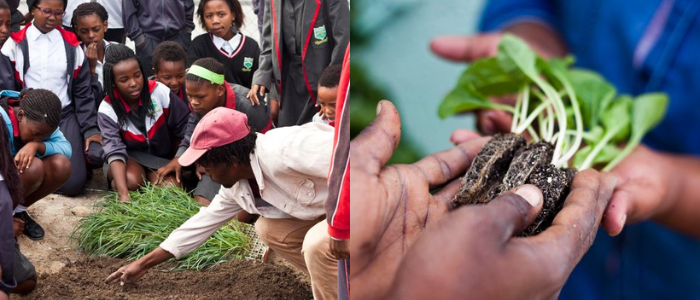
Recently World Hunger Day was observed in a bid to highlight the hunger crisis that so many vulnerable communities face around the world. While in South Africa, local initiatives such as Oribi – an impact incubator, providing programmes for skills development, training & support of entrepreneurs – aims to highlight the importance of social entrepreneurship as a vehicle to solve SA’s hunger crisis by introducing one of the country’s first socially innovative food incubation programs, starting in Cape Town.
While South Africa remains one of the most unequal countries in the world and faces endemic employment and chronic poverty, NGO’s like Oribi drive entrepreneurs, organisations, public authorities & companies to impact society through tangible action. The most vulnerable populations living in rural and peri-urban areas face the triple burden of poverty, unemployment, and inequality. According to the 2020 World Bank Statistics, 55,5% of the population are still living under the upper-bound poverty line of R992 per month. The constitution of the Republic of South Africa states that “everyone has the right to have access to sufficient food and at the national level South Africa is food secure. Yet, 25% of the households have inadequate access to food and 27% of children under the age of five experience a negative impact in growth and development as referenced in the 2019 WWF Report. Clearly indicating South Africa’s food system is not easily accessible to all.
The Food System program, started by Oribi, aims to enable the development of sustainable value chains, from farm-to-plate, by bridging informal and formal economies through social innovation. “We work with social entrepreneurs whose business models are principled on the wellbeing of marginalized people, communities and our environment. Most importantly, finding new solutions in a complex system like food requires multi-level collaboration, experimentation and exploring possibilities with, within and/from the unmet or under-served market”, says Nthakoana Maema, Programmes Manager at Oribi. The organization partners with food system innovators to enable financially thriving social business models and collective agency with, within, and/or for marginalized communities.
Maema says Oribi’s objective is to strengthen the entrepreneurial mindset, economic inclusion, and self-confidence of 50 food system innovators, especially youth and women entrepreneurs from rural and urban townships. “Currently we’d like to support the launch and development of 30 innovative social enterprises enabling food security in SA through inclusive business models and to showcase, build trust and solidarity within the social entrepreneurship ecosystem to unlock collective growth”, says Maema.
Past Incubatee (2021 Cohort), Leon Qwabe, owner of Order Kasi – a first of its kind township Uber-style service says "Oribi has taught us what a social enterprise is and what it entails. The program has helped us structure Order Kasi as a company and also set focused goals with timelines regarding our execution, and how we build partnerships as a start-up in a challenging space." The meal delivery service exclusively offers food from restaurants based in the township and provides township restaurants access to reach a larger market through their platform as they cater to customers who are also located outside the township areas but crave a kasi meal, ensuring to deliver kasi food to your doorstep.
The NGO believes building sustainable food value chains is where the next turn for social change will come from. They have designed their programs from a developmental lens to make entrepreneurship more diverse and inclusive to women and youth coming from or living in rural and urban townships. To date, more than 25 social entrepreneurs have already attended one of Oribi’s nine-month long food-related incubation programs. In June 2022, they will be launching the open call for applications for this year’s cohort.
Dennis Molewa, mentor and food storyteller at Oribi, states, "As an entrepreneurial coach, I am especially looking forward to this year's food system programme due to its urgency. I believe that after the pandemic it is the ideal time to support local food entrepreneurs as they face an unsafe, unjust and unsustainable food system in South Africa."
The COVID-19 pandemic further deepened this crisis, with an estimated 4 million people at risk of hunger due to loss of livelihoods.
“Now more than ever, corporates, private organizations, individuals, industry bodies need to work together towards overcoming one of South Africa’s often overlooked national crises, since relying on Government efforts is simply not enough” says Maema.
Food insecurity has serious health consequences for individuals including an increased risk for chronic disease and poor mental health. The challenges faced by South Africa in terms of food security are not solely related to the production, but rather to the poor accessibility of healthy and nutritious food.
The persistence of hunger and malnutrition are complex and interrelated, spanning environmental, health, economic, socio-political, and agro-food issues. However, there is a lack of engagement between these stakeholders including civil society, the private sector, farmers and government, and the barriers to entry are particularly for new entrants such as social enterprises.
In 2020, at the onset of the hard lockdown, Oribi and its partners launched the “Bridging the Gaps”, an innovation challenge aimed at identifying and designing solutions that would re-route the food system towards feeding the most vulnerable communities. The upcoming Food System incubation program is in continuity of this challenge.



